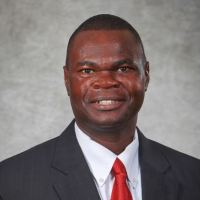Commentary on Romans 8:12-25
In Romans 8:1-39, the apostle Paul lays out a Christian framework, one that holds, sustains, and nourishes both clergy and Christian believers, regardless of where they are in their faith in the life of the church.
The framework can easily be called Pentecost, or the living presence of the Holy Spirit in and around the church. Believers, whose life is shaped and transformed by the church, must have personal experiences of the Holy Spirit and all baptized persons should have a longing for Pentecost encounters. If the church is an eschatological faith community, its leaders and members are called to embody this new life through the gift and power of the Holy Spirit. Thus, at some point in the life of clergy and believers, there should be a discontinuity with the life of the flesh in pursuance of the life encapsulated by the Spirit as Paul exhorts in Romans 8:12. With the transformation of believers’ character, comes also a transformation of culture, especially for those who claim to have a relationship with Jesus and are guided by the power of the Holy Spirit.
Congregation members or preachers cannot convert others to Jesus Christ; rather, it is the Holy Spirit that has power to lead people to repentance (John 16:8-11). On the other hand, the role of members and pastors is simply to proclaim the Word of God and leave room for the Holy Spirit to convict, condemn, teach and counsel members of the eschatological faith community. Pastors and Christian educators as well as Sunday school lay teachers must be aware that preaching/teaching during Pentecost seasons is not enough but opportunities must be available for members to learn and be engaged to grow deeper into grasping the role, function, and effects of the Holy Spirit. Paul lays out this responsibility in Romans 8:1-11, that with conversion comes also the freedom to know that the Holy Spirit can effect new change in the life of a believer. Thus, worship times can be great moments of teaching Christian communities about the centrality of the Holy Spirit.
The issue of adoption is also fascinating because the apostle talks about “Christians as children of God” through the Holy Spirit (8:14-17); yet many Christians fail to celebrate this privilege that allows us to be brothers and sisters across cultures, races, nationalities, genders, ethnicities, and even across political divides. During the season of Pentecost, congregations must be reminded of the privilege they have through the through the Holy Spirit in allowing the humanity to be one in faith, with God, Christ, and with one another. The political divide and continental winds of separation may be avoided if the church preaches and teaches about the indwelling power of the Holy Spirit that draws humanity to each other even in times of disagreements. Thus, if we are children and “heirs of God and coheirs with Christ,” churches have an obligation to accept others who are different and to realize our common ground of unity as children of God. I may venture to say that the Holy Spirit allows miracles to happen in the life of believers and that genuine Christian fellowship among different nationalities and ethnicities is indeed a miracle.
A question being raised by Paul in Romans 8: 12-25 revolve around the nature and definition of the church as the family of God. If people continue to preach a gospel of exclusion, how can the church be countercultural and in what ways can the church express the “righteousness of God,” as Jesus challenges disciples in the entire Gospel of Matthew, especially in Matthew 5:20?
As spiritually adopted children of God, the church must exhibit love, kindness, spirituality and holiness in everything it does and the members must strive to live out the life of the Holy Spirit, one that lays out a legacy for others to emulate and follow. Dying or declining congregations and denominations need to reclaim the power of the Holy Spirit or the result will be a permanent death. Practitioners of Christian faith may do well to remember that with the power of the Holy Spirit; there is a new opportunity for church revival and growth and with the teaching and classes on the Holy Spirit; most churches can indeed become Pentecost centers with new life and revitalized spirituality.
Theological education has its place, but the Apostle Paul stresses the importance of listening to the Holy Spirit’s leading as the prerequisite for framing ministry. Being led by the Holy Spirit may also lead one into greater intellectual development and the two seem to be necessary, but education and perhaps even ordination must submit to the Holy Spirit. In times of decline and turmoil caused by seasons of political, economic, and social transitions, believers will be allowed to pass through (8:17-25) and will glorify God in all they do because Jesus glorified God even when he was going through his own suffering, death, and resurrection. The Holy Spirit will always sustain the church and its members, even in times of storms and challenges.
Thus, times of church decline are perhaps moments when believers and church leaders are called to make some connections with Christ’s passion and resurrection. The ministry of the church has to go through suffering because the road to glorification is always through pain, challenges, and groans. It is a blessing to be pregnant but we all know that before giving birth to new life; a mother always goes through pain, lost appetite, sleeplessness, high blood pressure, and struggles with mobility; and yet at the end there is celebration. This too is the life of ministry piloted and done under the patronage of the Holy Spirit.
In sum, Paul brings to mind the struggles of nature and he equates the suffering of the physical worldview with that of humanity. If creation is in travail as Paul claims, the call to Christian believers is that redemption is possible only through God who works for the liberation of God’s creation. The church leadership of this century must not lay blame on economic, political, social, and changing demographics but acknowledge the fact that the Holy Spirit has been archived in libraries rarely visited. Most seminaries do not have a space for spiritual revitalization and as a result pastors graduate from seminary without spiritual vitality. Paul’s claim is that Christian faith communities must be resources for spirituality, grace, and holiness. Similarly, clergy and lay people together must be awakened from what may be a state of spiritual somnolence caused by labels such as liberalism, conservatism, centrism, and post-Christendom syndrome. The Holy Spirit is the power that grows the church, not church consultants or intellectuals.


July 23, 2017